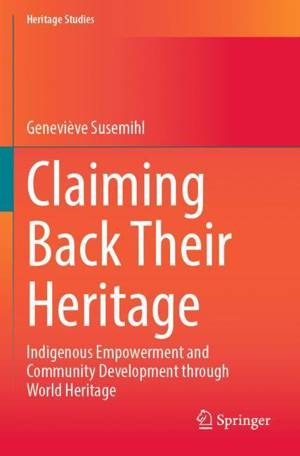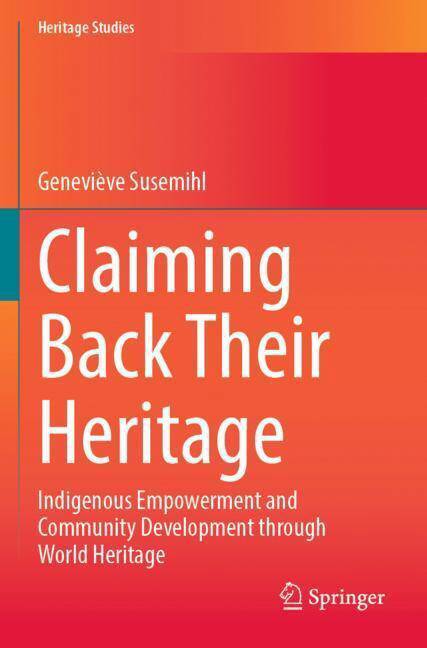
- Retrait gratuit dans votre magasin Club
- 7.000.000 titres dans notre catalogue
- Payer en toute sécurité
- Toujours un magasin près de chez vous
- Retrait gratuit dans votre magasin Club
- 7.000.0000 titres dans notre catalogue
- Payer en toute sécurité
- Toujours un magasin près de chez vous
Claiming Back Their Heritage
Indigenous Empowerment and Community Development Through World Heritage
Geneviève SusemihlDescription
This book provides a unique, in-depth look at three Indigenous World Heritage sites in Canada and their use for Indigenous empowerment and community development. Based on extensive ethnographic field studies and comprehensive narrative interviews, it shows how the three First Nation communities presented in the case studies enforce recognition of their collective rights to preserve their cultural heritage and assert their right to political, economic, cultural, and social self-determination. It also considers the prevailing universalistic discourses around World Heritage and the various ways in which they serve to either reinforce existing oppressive conditions regarding Indigenous communities and voices or provide opportunities to overcome them. The book will be of interest to scholars and students working on social and cultural histories, histories of colonialism, and in heritage and museum studies.
Spécifications
Parties prenantes
- Auteur(s) :
- Editeur:
Contenu
- Nombre de pages :
- 447
- Langue:
- Anglais
- Collection :
Caractéristiques
- EAN:
- 9783031400650
- Date de parution :
- 05-10-24
- Format:
- Livre broché
- Format numérique:
- Trade paperback (VS)
- Dimensions :
- 155 mm x 235 mm
- Poids :
- 802 g

Les avis
Nous publions uniquement les avis qui respectent les conditions requises. Consultez nos conditions pour les avis.






